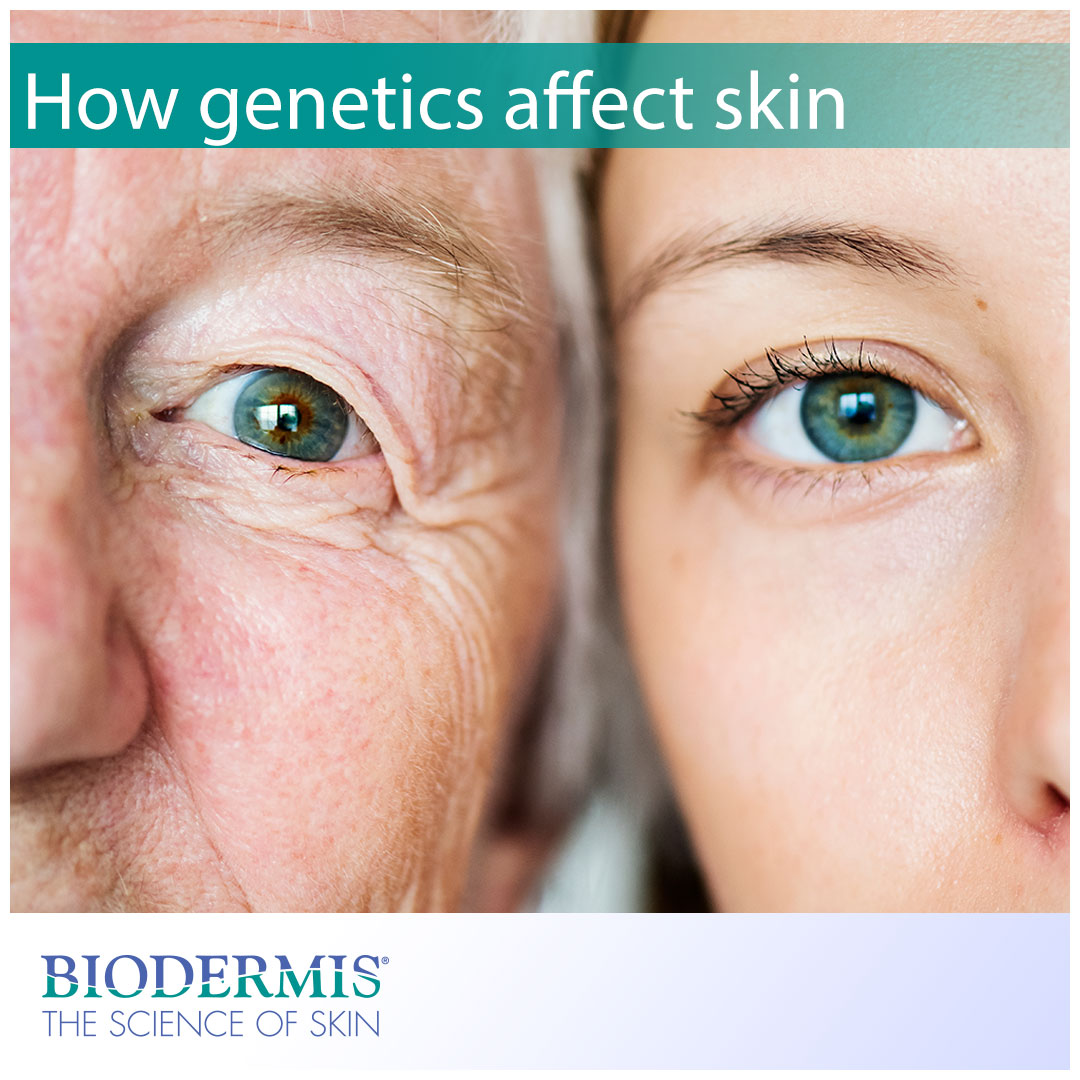The way our skin looks and feels throughout our lifetime has a lot to do with our genetics. Our DNA influences the color of our skin, cell production, dermal conditions, the onset of wrinkles, and much more. Skincare products on the market today try to combat the influence of genetics on the skin, but they don’t change its essential nature. Cosmetic dermatology can change the appearance of the skin temporarily, but many of these modifications don’t last forever. While we aren’t completely at the mercy of our genetic makeup, there are certain things that we may have to accept about our skin. In this article, we will explore some of the many ways genetics play a role in skin health.
Skin type
Genetics heavily influence the type of skin we have, including normal, oily, dry, combination (oily and dry), and sensitive skin. Each skin type has its own characteristics and will require different levels of care. Sensitive skin, for instance, is more prone to react to outside pathogens and irritants, which can lead to allergic reactions. Dry skin tends to feel scaley and cracked all year round, regardless of the season or climate. Oily skin is marked by a humid or shiny appearance and can lead to acne breakouts. Skincare products can counteract some of the symptoms, but they will not permanently change your basic skin type.
Skin conditions
Skin conditions such as eczema, chronic acne, psoriasis, and rosacea all have their roots in our genetics. Each condition is marked by different symptoms and are treated with different prescription and OTC medications. Inflammation is responsible for many conditions, such as eczema, which is characterized by dry, itchy skin and rashes. Rosacea is a harmless condition that causes redness and visible blood vessels in the face, which can look like the person is always blushing. Most conditions of the skin aren’t serious, but if you are experiencing distressing symptoms, then seeing a dermatologist may be your best option.
Skin color
Skin color is probably the most obvious expression of genetic influence in the body. The color of our skin is due to variations in pigmentation, with melanin being the most important substance. Melanin is produced in specialized skin cells called melanocytes and its expression is most profound in darker-skinned humans. A common condition known as vitiligo causes the loss of melanin in certain areas of the skin, which can appear spotty. In rare cases, individuals can be born without any melanin at all, in a condition known as Albinism. External factors such as prolonged sun exposure can affect skin pigmentation, but our skin color generally remains the same across the lifespan.
Skin aging
It’s a fact we might not all be comfortable with, but our genetics are mostly responsible for the rate at which our skin ages. Aging skin is marked by the development of fine lines and wrinkles, loss of skin elasticity, and becoming thinner. For some people, the first signs of skin aging start to become apparent at around the age of 25. Skin health can be preserved through healthy diet and exercise, wearing sunscreen, and maintaining general hygiene. While nobody can avoid the aging process, we can come to accept our skin for what it is and feel beautiful in it regardless of the natural changes experienced over time.
Skin healing
Genetics are thought to play a key role in the wound healing process and the appearance of scars. Links have been made between the number of healthy bacteria on the skin and how well wounds heal. The longer it takes for a wound to heal, the greater the risk of excessive scarring down the road. Specific scar types, such as keloids and hypertrophic scars, are caused in large part by our genetics. Luckily, you can treat your scars using medical grade silicone gel. Silicone products for scars can be purchased through your physician or online at Biodermis.com.
Biodermis is an innovative market leader with 30 years of expertise in the medical silicone industry. Visit Biodermis.com today to explore a complete range of scar management and post-operative care solutions.
Biodermis offers custom tailored referral programs designed to simplify and reduce the cost of your patients' post-op care. Additionally, we offer professional pricing if you opt to retail our products. Give us a call at 800.322.3729, and we will be happy to provide additional details on these programs.





